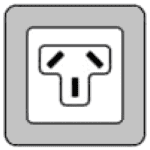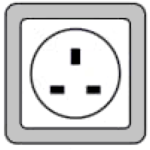Plug For Solomon Islands: What You Need To Know
What is the plug for Solomon Islands? Before you travel, check the information below to make sure your electronic devices are compatible with the outlet type and voltage.
Electrical Summary
Solomon Islands uses outlet types I, G at a voltage of 230V and a frequency of 50 Hz.
Plug Compatibility: Type I, G
Voltage: 230V
Frequency: 50 Hz
Type I

Type G

Can North Americans use Electronics in Solomon Islands without an Adapter?
No! North Americans will need an adapter for the outlets and a transformer for the voltage when traveling to Solomon Islands. North Americans device plugs will not work with the outlet types in Solomon Islands. Also, the voltage in Solomon Islands is different from North American voltages.
Can Europeans use Electronics in Solomon Islands without an adapter?
Europeans do not need a transformer when traveling to Solomon Islands. The voltage in Solomon Islands is the same as in Europe. However, Europeans will need a travel adapter when traveling to Solomon Islands.
What Outlet does Solomon Islands Use?
Type I

Type G

Type I plug sockets are used in Australia, New Zealand. They have two flat pins and a grounding pin. These plugs are typically used with devices that have a voltage of 230V.
Type G plug sockets are used in the United Kingdom, Ireland, Malta, Malaysia and some parts of Africa. They have three rectangular pins and a grounding pin. These plugs are typically used with devices that have a voltage of 230V.
Is it safe to drink water in Solomon Islands?
We recommend always packing a filtered water bottle when traveling:
Travel Essentials
Be sure to check our list of travel essentials before your trip!
Should I get travel insurance when traveling to Solomon Islands?
It is generally recommended to get travel insurance when traveling to a different country. Travel insurance can provide financial protection and peace of mind in case of unexpected events, such as medical emergencies, trip cancellations, lost or stolen baggage, or other travel-related mishaps.
Travel insurance can cover various expenses related to your trip, such as medical expenses, emergency medical transportation, trip cancellation or interruption, lost or stolen baggage or personal belongings, and other travel-related expenses.
Before purchasing travel insurance, it’s important to carefully review the policy details, including the coverage limits, exclusions, and any applicable deductibles or copays. You should also make sure that the policy covers any activities or destinations that you plan to participate in or visit during your trip.
Travel Summary
The economy of Solomon Islands is largely based on agriculture and fishing, with a focus on exports such as timber, fish, and palm oil. The country is also home to a growing service sector, including tourism and financial services.
Solomon Islands is a parliamentary democracy, with a governor-general as the representative of the monarch of the Commonwealth of Nations, and a prime minister as the head of government. The country has a unicameral parliament, known as the National Parliament, which is made up of 50 members.
Despite its many strengths, Solomon Islands faces a number of challenges, including poverty, unemployment, and limited access to healthcare and education. The country has also been impacted by natural disasters, including cyclones and earthquakes, which have caused significant damage and loss of life in the past.
The government of Solomon Islands has worked to address these challenges, with a focus on sustainable development, social welfare, and environmental protection. The country has also been a vocal advocate for global action on climate change, and is committed to reducing its greenhouse gas emissions and transitioning to a low-carbon economy.
Overall, Solomon Islands is a unique and beautiful country, with a rich cultural heritage and friendly people. The country’s natural environment is a major draw for visitors, and its cultural traditions and customs are a source of pride for its people. However, the country faces significant challenges in its development, and continued efforts are needed to address these challenges and promote sustainable growth and development.
Traveling to another country? Check out our Countries page for more info.